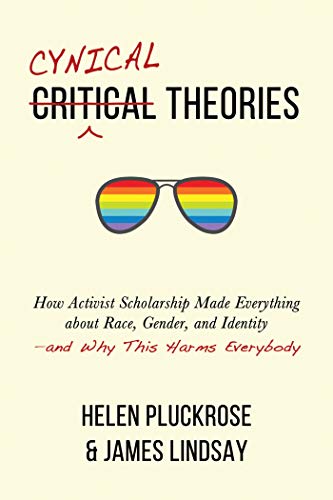Janie and Charlotte, college friends who grew up to occupy opposite sides of the political spectrum, continue their quest to make public discourse less ugly and stupid:
In our last exciting installment, we went back and forth on some of the specific cases that brought this issue to everyone’s mind. Charlotte ended with a question that gets to the heart of the issue–
 Charlotte
Charlotte
OK Janie, now I have a question for you: Why is it that some Evangelical Christians insist that homosexuality is only behavior and not part of the innate essence of some human beings? Why can’t they allow room for other people to be who they are and do what they do and live their lives in peace?
Janie
That’s two questions, and though they’re related, the first is theological and the second political/social. The first takes us deeper into the reasons conservative Christians have for rejecting same-sex marriage (for example) while the second brings us back to the original issue of religious freedom. The first requires we have certain inward convictions but the second requires only a modicum of good will and mutual respect.
So, in regard to your first question, I’m not aware that some Evangelical Christians insist that homosexuality is “only behavior”—though I guess “some” people will believe anything! I can only speak with authority about me, and my own thought is that of course homosexual behavior stems from the innate essence of certain humans beings, since people generally act out of what we might call their essences. Out of the heart the mouth speaks, Jesus said, and the person acts.
But that’s exactly the problem. My own “innate essence,” if unredeemed by the blood of Christ, is sin. You may think I say this because I’m a Calvinist (total depravity, and all that), but I knew it long before I could put a label on it. “There is none righteous; no not one,” and that includes me. I’m not a homosexual, but I’m a casual liar and a subtle manipulator, and I have to keep a chain on these and other manifestations of me as I fight against them.
I understand that many readers will be shocked at the idea of homosexual practice in the same category as lying and manipulating (and a host of other sins). Well, I wouldn’t if I had a choice, but I believe God puts them there, and so must I. That doesn’t mean that LGBT people can’t be redeemed; of course they can. But I do believe they need to accept that their sexual desires are part of the sin nature Christ longs to redeem, rather than a special gift that should be celebrated, any more than idolatry, adultery, stealing, greed, intemperance, blasphemy and cheating should be celebrated. “And such were some of you” (1 Corinthians 6:11). Such, in fact, were all of us, but we may be “washed, sanctified, and justified in the name of the Lord Jesus Christ and by the Spirit of our God.”
I come to these conclusions not because I hate gays or don’t know anyone who’s gay, or despise anyone who’s different, but because the Bible is not squishy about this. I’ve read rationalizations to the contrary, and they strike me as just that: rationalization and wishful thinking. I know Christians who struggle against same-sex attraction, and for them the fight is worth the prize. “To live is Christ, and to die is gain.”
As for Christians who are also practicing gays and lesbians, they will answer to God, not me. I can only tell them the truth to the best of my ability and knowledge.
Beyond that (touching on your second question), of course they should be allowed to live their lives in peace. Shouldn’t I be allowed the same courtesy? What about Baronelle Stutzman? Ruth Neely? Dr. Eric Walsh?
I could go on…
Charlotte
So let me get this straight: you do accept that homosexuality can be part of the innate essence/ being of some people but you believe when these people behave according to that nature (especially sexually) and “practice” homosexuality, then they are living in their “sin nature.”
Is that fair?
We agree that you and I are not trying to change each other’s minds in this conversation; rather we are trying to understand each other. So I’ll just respond with a part of my own journey from biblical fundamentalism into progressive Christianity. And no – this is not “justification and wishful thinking;” this is sound theology held by countless Christians.
I would say that indeed the Bible is “squishy” about homosexuality. The few texts people regularly quote can be interpreted in a variety of ways, especially given the completely different cultural context of ancient Israel and the Roman Empire. Applying expectations from the First Century to the very different context of the Twenty-first Century is not neat or simple. You don’t accept the Bible’s assumptions on women’s submission and slaves’ subservience, I will guess.
As Christians, for us the life of the Christ is the key to explain, amplify, demonstrate, interpret any of the other biblical texts. For me, Jesus’ example of welcoming and including those who were judged by the religious people of their own day gives me all the motivation I need to welcome wholeheartedly. Jesus’ example of chastising the religious leaders who drew bright lines and excluded some people from the fullness of God’s grace gives me pause as a religious leader myself. As I have said before, if God is my judge then I would rather be judged for including than judged for excluding.
When I stand with couples as their minister for their wedding vows, I always cite the love passage from First Corinthians 13: Love is patient, kind. It is not arrogant, rude, irritable or resentful. Love bears all things, believes all things, hopes all things, endures all things. Love never fails.
Whenever any couple makes their commitment to live in this kind of love, then I boldly say God-Who-is-Love is honored. Whenever any couple keeps their vows “for better or for worse, in sickness and in health until death do us part…” then I say God-Who-is-Faithful is honored.
Janie
My position is also “sound theology held by countless Christians,” not mindless bigotry as is sometimes portrayed (not by you!). It’s not based on a few texts, but on the entire sweep of biblical history and what we can discern about God’s purpose and design from within scripture and outside of it. Such as
- The biological fact that the sexes were literally made for each other; confirmed by scripture (“This is bone of my bone and flesh of my flesh . . .”);
- The creation mandate to “be fruitful and multiply,” which could have an additional spiritual meaning but in the context clearly means making babies;
- The lack of any favorable or remotely positive mention of homosexuality in scripture;
- Jesus’ own definition of marriage as between a man and a woman;
- God’s clear and strict limits on sexual behavior, which most heteros have a problem with.
Charlotte
My progressive Christian friends and my liberal secular friends see a lot of “mindless bigotry” on the Right. Unfortunately that is the public face of Christianity for a lot of non-Christians these days. One of the reasons I’m glad you and I are having this conversation (out of the several reasons I am glad) is that I would like more non-religious people to hear the rationale of a kind-hearted, thoughtful Christian like you. Most of them won’t agree with your theological argument (I don’t even agree with it) but your thought process and conclusions are anything but “mindless.” Your humility and compassion shine through.
Progressive Christian theology also considers “the entire sweep of biblical history and what we can discern about God’s purpose and design…” So look how we begin with similar intent and end up in such different places! I keep saying First Amendment = Messy. This reminds me that our sincere differences also demonstrate that biblical interpretation is messy.
Janie
I agree that Christ is the key to interpreting all other biblical texts, so we need to pay close attention to what he said and did. He invited all sinners to come to him, but drew one bright line, and that was himself: “No one comes to the Father but by me.” He upheld the Law—“I have not come to abolish it but to fulfill it”—lived a life of perfect obedience and died with all my sins on his head. That’s how seriously God takes sin: someone has to pay for it. One sinless man paid so that I don’t have to. I still sin, but am obliged to struggle against my “innate essence,” my natural bent toward selfishness and dishonesty. As a new creature in Christ I can’t cling to my old ways, and can’t encourage others to remain in what I see as sin.
The God-who-is-love demands that we love him first and best—not because he’s a self-centered tyrant but because he’s the source of everything good, and by loving him we find our best and truest selves. If I were talking to an unbeliever who is gay, sexuality wouldn’t even be part of the conversation at first, because it’s not the real problem. The real problem, as it is with all of us, is loving something more than God, and putting our own thoughts, desires, and ambitions in place of God, as it has been since the Fall.
A brief point about being judged: if, you say, God is your judge then you would rather be judged for including than for excluding. Okay, but it seems to me this is not a matter of if but when. God will judge everyone, including me and you. If we are “in Christ,” i.e., standing under Christ’s imputed righteousness, we will be judged righteous for his sake, not for anything we did or didn’t do.
Charlotte
So we will agree to disagree on the theological and biblical arguments here. And I will say (as you suggested in our last conversation): “Okay Janie, times are changing—hope you catch up someday!” 
Janie
To which I would say, if I had the presence of mind for a quick comeback, “Yeah, well, in my book, eternity trumps time.” 
Charlotte
Back to our conversation about religious freedom. The examples you offer remind us how very complex it is to apply Constitutional freedoms fairly. (First Amendment = Messy.) I respect each of the people who have found themselves mired in this current confusion as we figure out how to respect their rights at the same time we respect the rights of those who disagree. I am sorry for this challenging time. I believe we will get through this and be stronger and wiser and more compassionate on the other side.
Janie
It’s a real issue, and will only be solved by accepting each other in good faith. Regarding same-sex marriage, to put it bluntly: you won. But some factions seem unwilling to rest until everybody agrees, or keeps their disagreement entirely under wraps. When schools and colleges are threatened if they continue to teach their dissenting views (as recently happened in California), we are approaching something like thought control. Will you at least concede that Ted Cruz has a point, even if you don’t agree with his prescriptions? Do you understand why I’m worried about this?
Charlotte
No, I don’t concede that Ted Cruz has a point. I still argue that he (and you) are focused on one side of the issue while the Courts are trying to balance all sides in as fair a way as possible in all this messiness. One of our commenters on one of our recent conversations noted that single individuals choosing to discriminate because of a religious belief is one thing while entire communities of people refusing services to another entire population of people is something else entirely. She said: “The fact is, the past is riddled with the consequences of communities having the right to do just this…” That’s why our Court system is so important – balancing the rights of some against the rights of others.
Throughout American history, our Courts have bent over backwards to try to accommodate the sincere religious perspective in the application of our civil laws: Jehovah’s Witness Americans refusing oaths or the pledge of allegiance; pro-life Americans opting out of abortion procedures; Muslim Americans and the length of their beards or the wearing of their hijabs; Native American understandings of the sacred (definitely a mixed bag of rulings here). Anyway, I could go on… Conscientiously objecting and opting out is a religious liberty that has been protected again and again by our Courts. However, the practice of discriminating against other people has been struck down repeatedly by those same Courts.
I wrote an open “Letter to My Christian Friends who are Anxious about Your Religious Liberty” some time ago. It’s my best argument for trying to see and respect all sides of this important issue. And yes – it would be nice if regular people could solve more of these problems face to face by giving each other space and “accepting each other in good faith.”
Janie
It’s not just “nice,” it’s vital for living together in a democracy when cultural seams begin to stretch apart. The court system is overburdened as it is, not to mention prohibitively expensive and time-consuming; “taking it to the judge” is not an option for many people. If you and your partner can get the flowers or the cake from another vendor, why not just do that?
To conclude, here’s a paragraph from Justice Kennedy’s Obergefell opinion. I took issue with some of his other statements in that opinion, but appreciate that he added this:
Finally, it must be emphasized that religions, and those who adhere to religious doctrines, may continue to advocate with utmost, sincere conviction that, by divine precepts, same-sex marriage should not be condoned. The First Amendment ensures that religious organizations and persons are given proper protection as they seek to teach the principles that are so fulfilling and so central to their lives and faiths, and to their own deep aspirations to continue the family structure they have long revered.
Charlotte
Good quote. Justice Kennedy notes an important American reality here. Too many of my non-religious friends on the Left completely misunderstand this in their flippant application of “separation of church and state.” If the First Amendment means anything, it means we all have equal access to the public conversation.









 Charlotte
Charlotte
